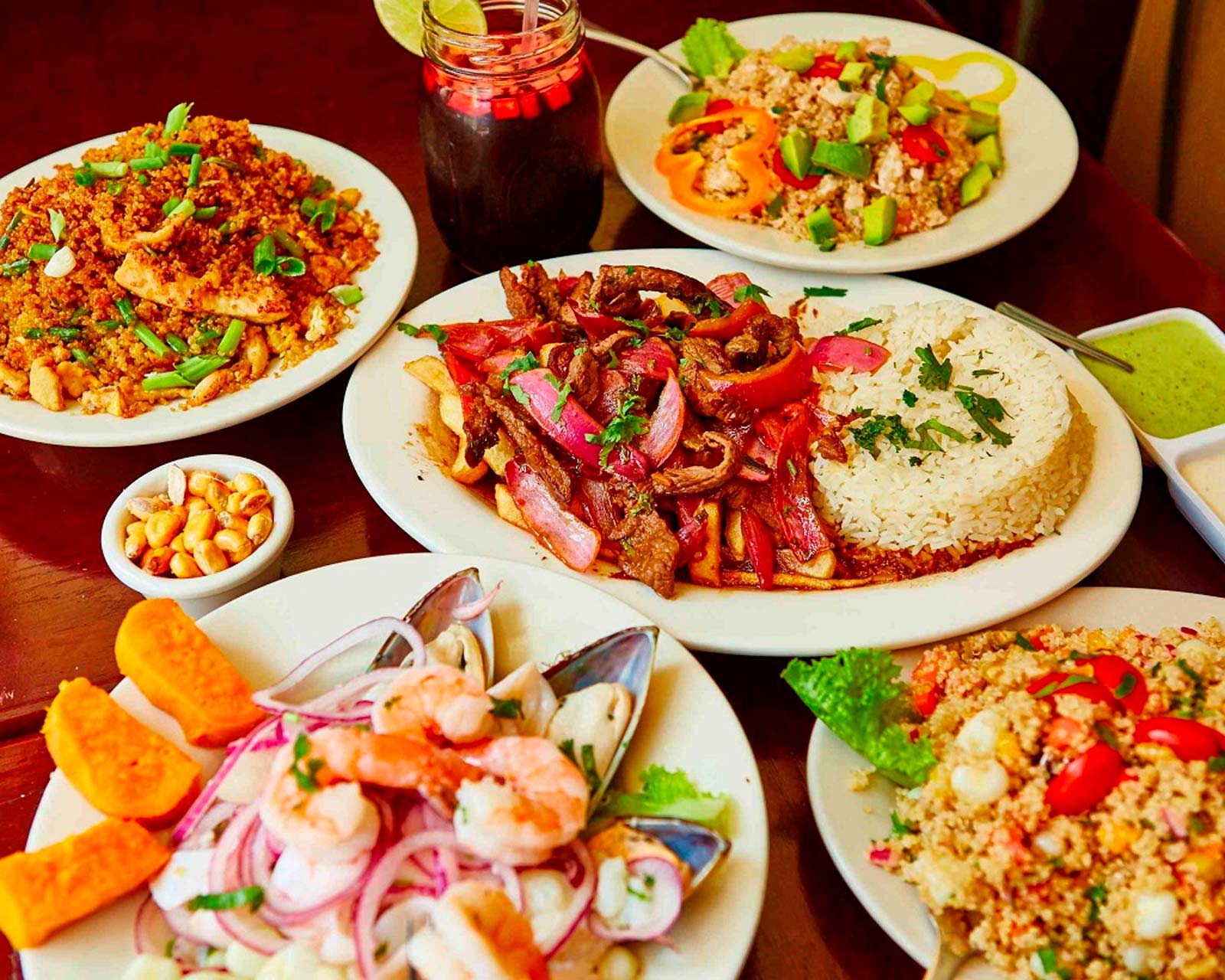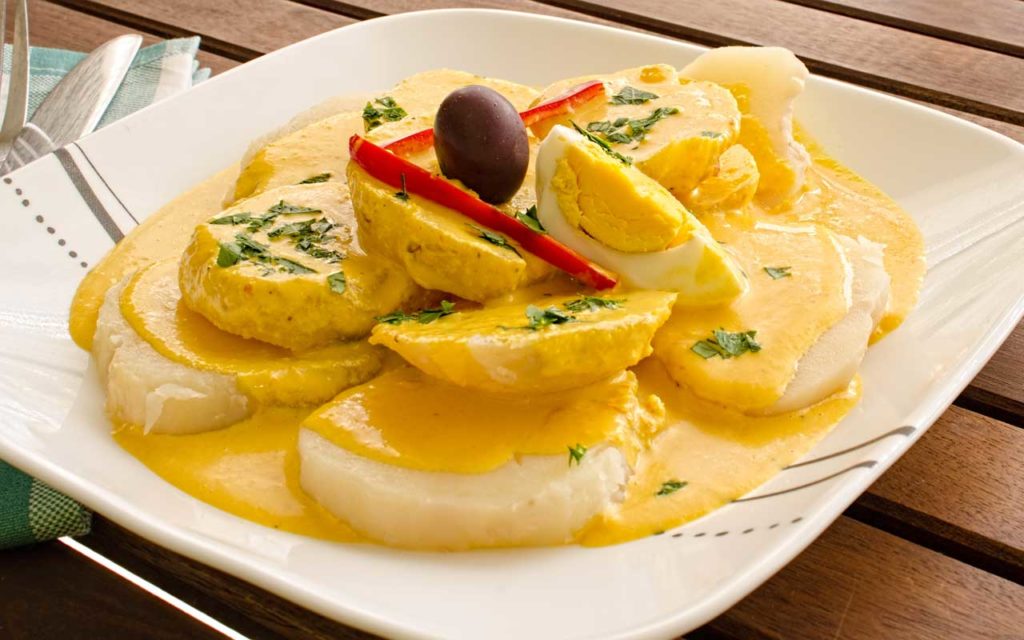Embark on a culinary journey via the colourful flavors of Peruvian meals, a tasty fusion of indigenous, Spanish, African, and Asian influences. From the bustling streets of Lima to the distant Andean highlands, Peruvian delicacies captivates with its variety, freshness, and health-conscious elements.
Put together to tantalize your style buds as we discover the regional variations, conventional cooking strategies, and widespread dishes which have earned Peruvian delicacies international recognition. Be part of us on this gastronomic journey the place meals transcends mere sustenance and turns into a celebration of tradition and neighborhood.
Historical past of Peruvian Delicacies
Peruvian delicacies is a vibrant and numerous culinary custom that has been formed by a wealthy mix of indigenous, Spanish, African, and Asian influences. The result’s a novel and flavorful delicacies that’s celebrated all over the world.
The indigenous peoples of Peru, such because the Incas, laid the inspiration for Peruvian delicacies. They cultivated a wide range of crops, together with potatoes, corn, quinoa, and tomatoes, which stay staples of Peruvian dishes at the moment. Additionally they developed strategies for preserving meals, akin to drying and freezing, which allowed them to outlive within the harsh Andean local weather.
Spanish Affect
The arrival of the Spanish within the sixteenth century introduced new elements and cooking strategies to Peru. The Spanish launched wheat, rice, beef, pork, and hen to the area. Additionally they launched new cooking strategies, akin to frying and baking.
The fusion of indigenous and Spanish elements and strategies created most of the traditional Peruvian dishes that we all know at the moment, akin to ceviche, lomo saltado, and causa rellena.
African Affect
The African slave commerce additionally had a big impression on Peruvian delicacies. African slaves introduced their very own culinary traditions to Peru, which included the usage of spices and herbs. Additionally they launched new dishes, akin to anticuchos and tamales, which have develop into widespread all through the nation.
Asian Affect
Within the nineteenth century, Chinese language and Japanese immigrants arrived in Peru and introduced their very own culinary traditions. The Chinese language launched stir-frying and the usage of soy sauce to Peruvian delicacies. The Japanese launched sushi and sashimi. These Asian influences have additional enriched the variety of Peruvian delicacies.
Regional Variations
/__opt__aboutcom__coeus__resources__content_migration__serious_eats__seriouseats.com__images__2015__06__20142828-peruvian-cuisine-ceviche1-kevin-cox-2d7966badb274a88a7bd077f2057a6a9.jpg)
Peruvian delicacies is famend for its numerous regional variations, a testomony to the nation’s wealthy geography and numerous ecosystems. From the bustling coastal cities to the Andean highlands and the Amazonian rainforest, every area boasts distinctive culinary traditions that mirror the native elements and cultural influences.
The coastal area, with its entry to contemporary seafood, is known for dishes akin to ceviche, a refreshing marinated fish dish, and tiradito, an identical dish with thinly sliced fish.
Andean Delicacies
The Andean area, recognized for its excessive altitude and rugged terrain, options hearty dishes that usually incorporate native elements like potatoes, quinoa, and alpaca meat. Cuy, roasted guinea pig, is a standard delicacy within the Andes, whereas locro, a potato-based stew, is a comforting dish that showcases the area’s agricultural heritage.
Amazonian Delicacies
The Amazonian area, with its plentiful rainforest assets, presents a novel delicacies that emphasizes contemporary fruits, greens, and fish. Juane, a dish of rice, hen, and olives wrapped in bijao leaves, is a regional specialty, whereas tacacho, a fried plantain dish, is a well-liked accompaniment.
Frequent Elements
Peruvian delicacies is a vibrant tapestry of flavors, and its basis lies within the nation’s numerous array of elements. From the colourful hues of achiote to the earthy notes of quinoa, every ingredient performs a pivotal position in shaping the distinctive culinary panorama of Peru.
These elements should not merely culinary parts; they’re deeply ingrained within the cultural material of Peru, with historic and geographical influences shaping their use and significance.
Achiote
Achiote, also referred to as annatto, is a vibrant red-orange seed that imparts a particular shade and earthy taste to Peruvian dishes. Its seeds are floor right into a paste and used as a pure meals coloring and seasoning.
Achiote is a staple ingredient in dishes akin to aji de gallina, a creamy hen stew, and arroz con pato, a flavorful duck and rice dish.
Quinoa
Quinoa is an historic grain that has been cultivated in Peru for hundreds of years. It’s a dietary powerhouse, wealthy in protein, fiber, and important minerals.
Quinoa is a flexible ingredient, utilized in all the things from salads and soups to foremost programs. It’s usually paired with greens, meats, and seafood.
Potatoes
Peru is dwelling to over 3,000 types of potatoes, making it a worldwide middle of potato variety. Potatoes are a staple meals in Peru and are utilized in a variety of dishes, from soups and stews to fried and mashed preparations.
Causa rellena, a layered potato dish crammed with numerous elements, is a testomony to the flexibility and significance of potatoes in Peruvian delicacies.
Corn
Corn, or maize, is one other important ingredient in Peruvian cooking. It’s utilized in each contemporary and dried kinds, and is floor into flour to make tortillas, tamales, and different conventional dishes.
Chicha morada, a refreshing purple corn drink, is a beloved beverage in Peru.
Chilies
Chilies add a vibrant warmth and depth of taste to Peruvian dishes. From gentle aji amarilloto fiery rocoto, chilies are utilized in a wide range of sauces, marinades, and pastes.
Ceviche, a uncooked fish dish marinated in citrus juice and chilies, is a traditional instance of the harmonious interaction of flavors in Peruvian delicacies.
Common Dishes
Peruvian delicacies boasts a various array of delectable dishes that mirror the nation’s wealthy culinary heritage. From the succulent flavors of the coast to the hearty choices of the highlands, Peruvian gastronomy tantalizes style buds with its vibrant flavors and distinctive elements.
Should-Attempt Peruvian Delicacies
The next desk presents a curated collection of among the most beloved and iconic Peruvian dishes, every providing a definite culinary expertise:
| Dish Title | Description | Area of Origin | Key Elements | Picture |
|---|---|---|---|---|
| Ceviche | A refreshing seafood dish made with uncooked fish marinated in citrus juices, pink onions, cilantro, and aji peppers. | Coastal | Fish (sometimes sea bass, flounder, or sole), lime juice, pink onions, cilantro, aji peppers | [Image: Ceviche with fresh fish, onions, and cilantro] |
| Lomo Saltado | A stir-fried beef dish with onions, tomatoes, peppers, and French fries. | Coastal | Beef, onions, tomatoes, peppers, French fries, soy sauce, vinegar | [Image: Lomo Saltado with tender beef and colorful vegetables] |
| Aji de Gallina | A creamy hen stew made with aji amarillo peppers, walnuts, and milk. | Coastal | Hen, aji amarillo peppers, walnuts, milk, onions, garlic | [Image: Aji de Gallina with creamy sauce and shredded chicken] |
| Papa a la Huancaina | Boiled potatoes topped with a spicy, creamy sauce made with aji amarillo peppers, cheese, and milk. | Central | Potatoes, aji amarillo peppers, cheese, milk, onions, garlic | [Image: Papa a la Huancaina with yellow sauce and boiled potatoes] |
These dishes symbolize only a small sampling of the culinary treasures that await you in Peru. Whether or not you are a seasoned foodie or a culinary novice, Peruvian delicacies guarantees an unforgettable gastronomic journey.
Conventional Cooking Strategies: Peruvian Meals

Peruvian delicacies boasts a wealthy culinary heritage, with conventional cooking strategies enjoying a pivotal position in shaping its distinctive flavors and textures. These strategies have been handed down via generations, preserving the essence of Peruvian gastronomy.
Among the many most famed conventional cooking strategies are pachamanca, anticuchos, and chicharrones. Every methodology imparts distinctive traits to the dishes, creating a various and fascinating culinary expertise.
Pachamanca
Pachamanca is an historic cooking approach that entails burying meals in an underground oven lined with sizzling stones. The meals is wrapped in banana leaves and cooked slowly over a number of hours, leading to tender and flavorful dishes. This methodology imparts a smoky, earthy taste to the meals, showcasing the pure flavors of the elements.
Anticuchos
Anticuchos are grilled skewers created from marinated beef coronary heart. The meat is marinated in a flavorful mix of spices and herbs, together with cumin, garlic, and aji panca paste. The skewers are grilled over sizzling coals, giving the meat a barely charred exterior and a juicy, tender inside.
Anticuchos are a preferred road meals in Peru and are sometimes served with a facet of boiled potatoes and aji sauce.
Chicharrones, Peruvian meals
Chicharrones are crispy fried pork stomach. The pork stomach is first boiled after which fried till golden brown and crispy. Chicharrones are sometimes served as a snack or appetizer and might be accompanied by numerous dipping sauces, akin to salsa criolla or aji verde.
Fashionable Peruvian Delicacies
In recent times, Peruvian delicacies has undergone a exceptional evolution, gaining international recognition for its fusion of conventional flavors with fashionable strategies.
This culinary transformation has been spearheaded by a brand new era of Peruvian cooks who’ve embraced worldwide influences whereas staying true to their heritage. They’ve experimented with new elements, cooking strategies, and displays, creating dishes which are each progressive and genuine.
Notable Peruvian Cooks and Eating places
Among the many most notable Peruvian cooks who’ve contributed to the worldwide recognition of Peruvian delicacies are:
- Gastón Acurio, recognized for his fusion of Peruvian and worldwide flavors at his restaurant Astrid y Gaston.
- Virgilio Martinez, whose restaurant Central has been named among the finest eating places on this planet for its progressive use of Peruvian elements.
- Pía León, who has gained popularity of her fashionable Peruvian delicacies at her restaurant Kjolle.
These cooks and their eating places have performed a big position in showcasing the variety and creativity of Peruvian delicacies to the world.
Well being Advantages

Peruvian delicacies just isn’t solely a culinary delight but in addition a testomony to the nation’s wealthy pure assets and cultural heritage. Its emphasis on contemporary, healthful elements and conventional cooking strategies presents a plethora of well being advantages.
The abundance of fruits, greens, and entire grains in Peruvian delicacies offers a various vary of nutritional vitamins, minerals, and antioxidants. These vitamins play an important position in sustaining general well being and well-being, lowering the danger of power ailments, and selling a wholesome digestive system.
Lean Proteins
Peruvian delicacies options a wide range of lean protein sources, together with fish, poultry, and beans. These meals are low in saturated fats and excessive in protein, which is important for constructing and sustaining muscle mass, supporting a wholesome immune system, and offering vitality.
Anti-Inflammatory Properties
Many Peruvian dishes incorporate elements with anti-inflammatory properties, akin to turmeric, ginger, and chili peppers. These compounds have been proven to scale back irritation all through the physique, which may alleviate ache, enhance digestion, and defend towards power ailments.
Cultural Significance
Meals holds immense cultural significance in Peruvian society, deeply entwined with the nation’s wealthy historical past, traditions, and social material. Peruvian delicacies performs a central position in festivals, celebrations, and household gatherings, bringing individuals collectively to share meals and create lasting reminiscences.
Communal Eating
Peruvian eating is inherently communal, with meals usually shared amongst household and pals. This communal facet fosters a way of togetherness and belonging, the place meals turns into a catalyst for strengthening social bonds and constructing neighborhood. The act of sharing meals symbolizes unity, equality, and the significance of collective experiences.
Questions Typically Requested
What’s the hottest Peruvian dish?
Ceviche, a refreshing seafood dish marinated in citrus juices and spices, is broadly thought-about Peru’s nationwide dish.
What are the important thing elements utilized in Peruvian delicacies?
Achiote, quinoa, potatoes, corn, and chilies are among the many mostly used elements, every including distinctive flavors and textures to Peruvian dishes.
Is Peruvian meals spicy?
Whereas some Peruvian dishes incorporate spicy peppers, many should not inherently spicy. Using spices varies relying on the area and private preferences.

/__opt__aboutcom__coeus__resources__content_migration__serious_eats__seriouseats.com__images__2015__06__20142828-peruvian-cuisine-ceviche1-kevin-cox-2d7966badb274a88a7bd077f2057a6a9.jpg?resize=800&w=800&ssl=1)

